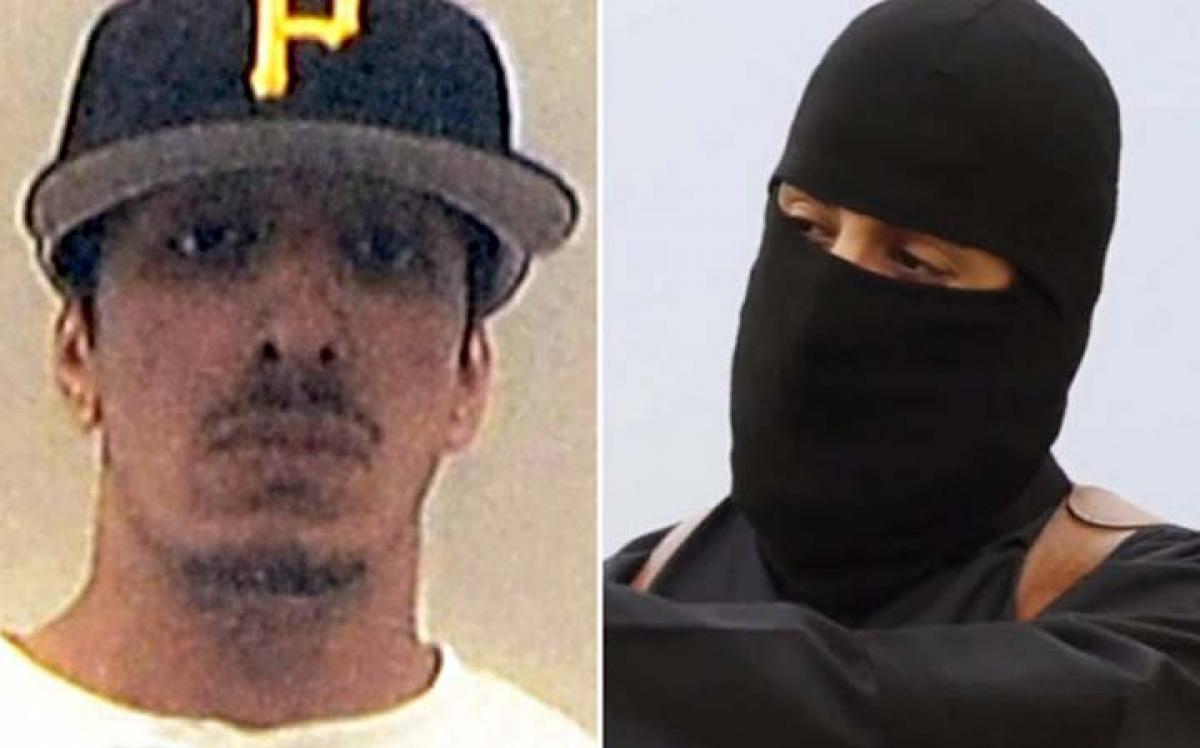Live
- Tim Southee matches Chris Gayle's six-hitting record in his farewell Test
- AP Mnister Ponguru Narayana Inspects Highway Connectivity Roads to Amaravati
- Reduced inflow: Water levels in Chembarambakkam, Poondi reservoirs drop
- Slapgate haunts CM as Rohini slams Nitish following Patna DM’s action against BPSC candidate
- Amazon Music India Unveils 'Best Of 2024’ Celebrating Top Hits, Artists & Podcasts
- Kejriwal writes to HM Shah on law and order, seeks urgent meeting
- Big e-commerce firms to adopt Safety Pledge on National Consumer Day
- Cop ends life over torture by wife, father-in-law in Bengaluru
- Indian Constitution longest and most beautiful, Kiren Rijiju lauds its inclusive character
- BSNL's Rs 333 Plan Challenges Airtel and Jio with 1300GB Data: Details
Just In

x
Highlights
From a quiet, football loving child to an Islamic State executioner, the man who became one of the most haunting figures of the jihadist movement remains a mystery even after being the high-profile target at a US air strike.
From a quiet, football loving child to an Islamic State executioner, the man who became one of the most haunting figures of the jihadist movement remains a mystery even after being the high-profile target at a US air strike.

Born Mohammed Emwazi, the masked Brit who became known as "Jihadi John" sparked worldwide revulsion with his grisly executions of foreign aid workers and journalists in Syria on camera.
People who knew him quoted by British media said they could not reconcile the quiet but intense young man they knew with the "cold, sadistic and merciless" killer described by one former hostage.
Emwazi, 27, was born in Kuwait but the family moved to London when he was six years old and he grew up in North Kensington, a leafy, middle-class area where a network of Islamist extremists has since been uncovered.
As a child he was a fan of Manchester United football club and the pop band S Club 7, according to a 1996 school year book published by The Sun tabloid.
"What I want to be when I grow up is a footballer," he wrote in the book.
He went on to study information technology at the University of Westminster, which confirmed that someone by that name left six years ago and said it was "shocked and sickened" by the allegations.
A document published by Sky News revealed his birthdate to be August 17, 1988, and that he gained a lower second class (2:2) degree in his Information Systems with Business Management degree.
'Strange and unfriendly'
The campaign group Cage, which published years of correspondence with Emwazi, blamed his radicalisation on a post-graduation trip to Tanzania in 2009.
Emwazi told Cage the trip was a holiday, but said he was accused by British authorities of planning to join Al-Shebab fighters in Somalia.
Following overnight detention at gunpoint in Dar es Salaam, the Tanzanian capital, Emwazi said he and his friends were sent back to Britain via Amsterdam, being interrogated in both ports, according to the correspondence released by the London-based charity.
He claimed that British intelligence services had been behind his detention, that they had asked him to become a spy and that they had promised him "a lot of trouble" after he rejected the offer.
On the advice of his mother and taxi-driver father, Emwazi flew to Kuwait to live with his fiancee's family and took up a job in IT, Cage said.
He paid two return visits in 2010 to see his parents, who were living in a modest house on the edge of a housing estate in west London.
Neighbour Elisa Moraise told the Daily Telegraph that Emwazi by then had become "strange and unfriendly". It was while trying to return to Kuwait after the second of these visits, in July 2010, that he claimed in his emails to Cage that authorities blocked him from travelling and put him on a terror watch list.
'Adrenaline junky'
Court papers published by British media connected him to a network of extremists known as "The London Boys" originally trained by Al-Shebab. The Guardian newspaper said some of them played five-a-side football together.
The papers also linked him to Bilal al-Berjawi, who became a senior leader of Al-Shebab but was killed in a US drone attack in January 2012.
After changing his name to Mohammed al-Ayan and one final failed attempt to enter Kuwait in early 2013, he went missing, the Cage emails said.
Cage said the police told his family they believe he travelled to Syria after that. How he rose to become one of the world's most wanted men is a mystery, but one hostage who fell under his control in the IS group's hub in Raqa talked of a "cold, sadistic and merciless" killer.
Two British trainee medics who met Emwazi when he visited friends in a Syrian hospital described him as "quiet, but a bit of an adrenaline junkie".
"I spotted this guy walking in, dressed in full combat kit, with a pistol on a holster, magazine, shopping bag in one hand and talking on a phone in the other," one of the medics told ITV News. He would bring drinks, sweets and ice cream.
They described hearing of one incident in which Emwazi drew his gun against a group of armed men who threatened to steal his weapons.
"He seems like someone with not a lot to lose," said the medic.

Next Story
More Stories
ADVERTISEMENT
© 2024 Hyderabad Media House Limited/The Hans India. All rights reserved. Powered by hocalwire.com







